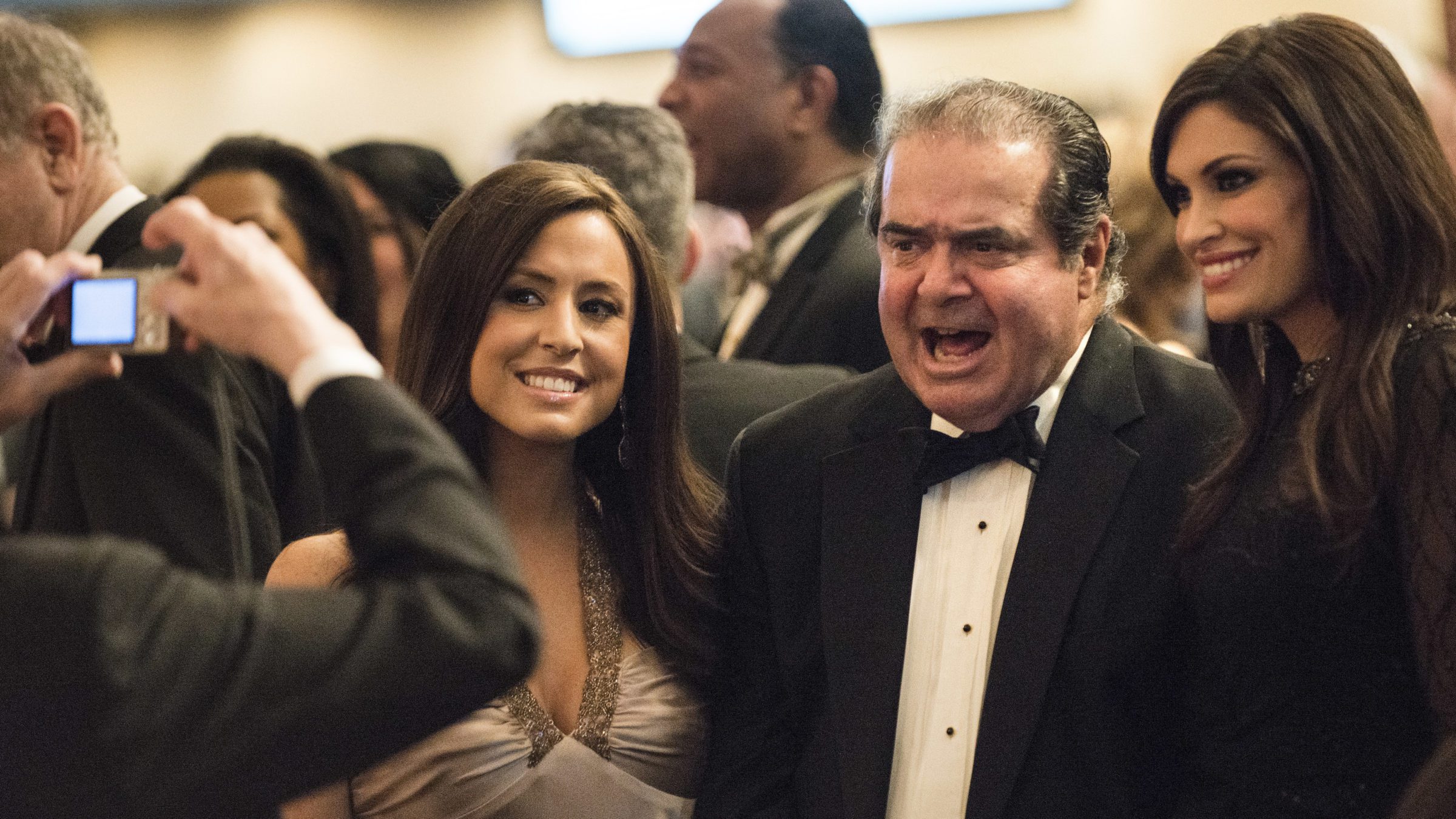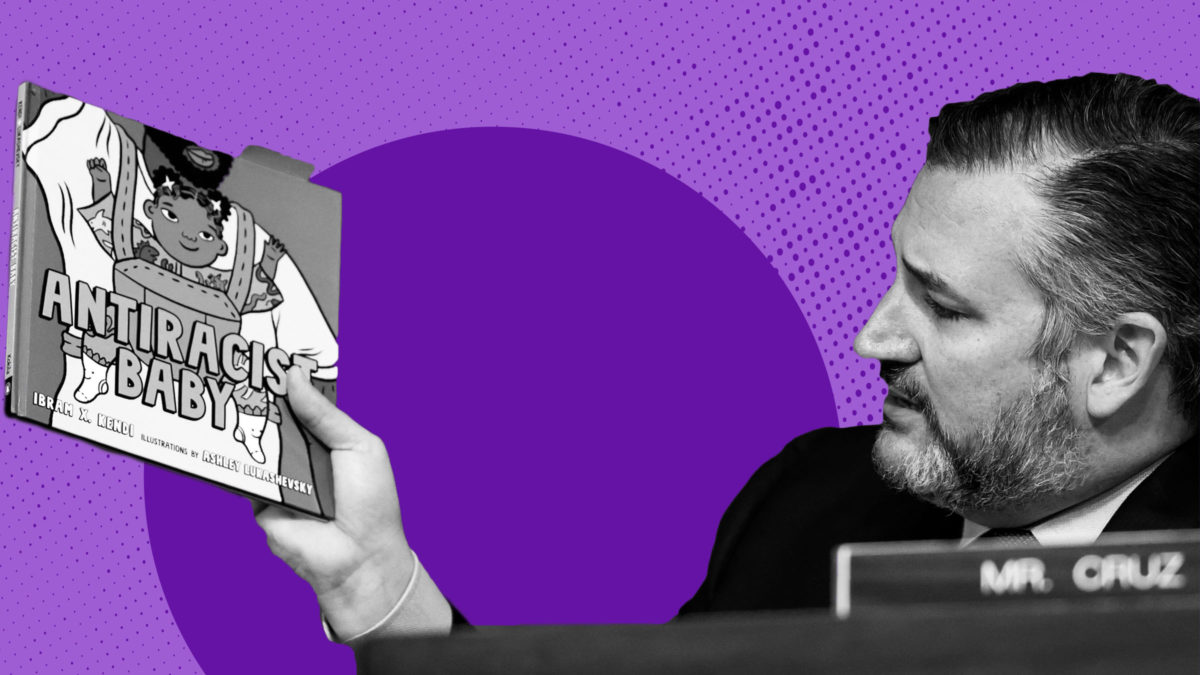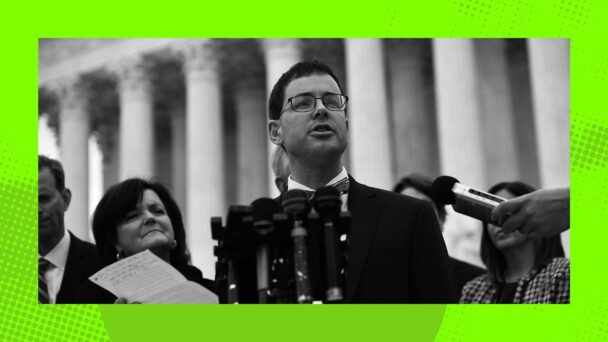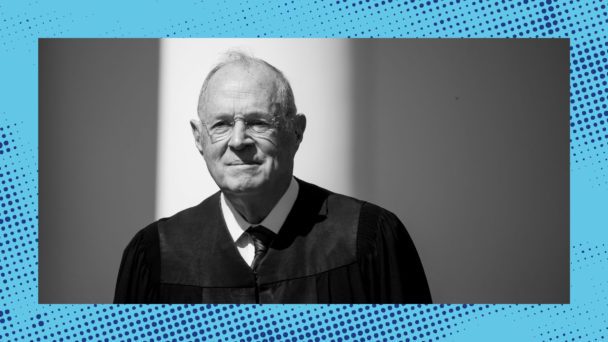We are witnessing the rebirth of the American Constitution. In a series of major decisions last term, the Supreme Court’s six-justice conservative majority rediscovered the original meaning of key constitutional provisions: the First Amendment in Kennedy v. Bremerton School District, the Second Amendment in New York State Rifle & Pistol Association v. Bruen, and the Fourteenth Amendment in Dobbs v. Jackson Women’s Health. These cases solidified the rule that the meaning of the Constitution is fixed; it does not bend to accommodate modern values like “gun violence is bad” or “the federal judiciary should not be co-opted by a corporate right-wing elite to accomplish their deeply unpopular policy goals.”
Justice Samuel Alito’s majority opinion in Dobbs was particularly enlightened. Like a renaissance sculptor chiseling an elegant bust from a block of marble, Alito nimbly hammered away existing precedent until only his conclusion remained: The right to an abortion is not constitutionally protected because it is not “deeply rooted in this Nation’s history and tradition.”
As Dobbs instructs, history and tradition are the keys to understanding our newborn Originalist Constitution. But being an effective originalist does not require a deep knowledge of every historical source. Instead, all one needs is a passing familiarity with a handful of foundational texts and a solid grasp of originalist methods of reasoning. Whether you’re a 1L who wants to impress your constitutional law professor on your next cold call or a Supreme Court justice who wants elections to be more aesthetic than functional, the reading list below will help you hone your originalism so that you can craft an original meaning to meet the occasion.

When someone at the cocktail hour brings up legislative history (BRENDAN SMIALOWSKI/AFP via Getty Images)
Absolutely Nothing Between 1863 and 1986
“History and tradition” doesn’t mean all history and tradition. As Justice Clarence Thomas made clear in his Bruen opinion—a veritable Picasso of originalist legal analysis—certain periods of history may be discarded. For example, the 1950s and 1960s. True, that’s when the Supreme Court issued many of its most important civil rights decisions, like Brown v. Board of Education and Gideon v. Wainwright. But you must also consider the originalist view that those decisions were, to use a technical term, wrong.
So, let’s just say you can ignore everything from the year of the Emancipation Proclamation to the year Ronald Reagan appointed Antonin Scalia to the Court. That will exclude most irrelevant case law and source material (for example, anything that suggests that the Fourteenth Amendment permits actual solutions to racial discrimination), allowing the originalist researcher to focus on more authoritative sources (for example, Scalia’s homophobic dissents).
An Amicus Brief from Americans for Prosperity
Pesky rules of appellate procedure mean that originalist judges cannot compile their own historical records to support their positions. Instead, they must rely on materials submitted by parties and amici—“friends of the court” who, with a court’s permission, provide their views on issues that a particular case may present.
That’s where Americans for Prosperity comes in. Americans for Prosperity is a political advocacy organization that supports all the stuff the Framers were in to: tax cuts, tea parties, neutering the Clean Air Act, eliminating Social Security, etc. The amicus briefs of groups like Americans for Prosperity provide courts with the 100 percent accurate historical records they need to issue fully informed originalist rulings.
Consider, for example, the brief that Americans For Prosperity submitted in 303 Creative LLC v. Elenis, which the Court will decide this term. That case concerns a Colorado law that would prohibit a wedding website designer from refusing service to a gay couple because of their sexual orientation. In opposing that law, Americans for Prosperity argues that the First Amendment protects paid expression like that of the graphic designer, in part because “the prospect of commercial enterprise supporting the pursuit of freedom of conscience has been with us from the beginning.” The brief continues: “Indeed, the Pilgrims themselves were . . . a for-profit enterprise.” Don’t be surprised if the originalist majority includes that remarkable historical insight in a decision in 303 Creative that ensures no God-fearing business owner will ever have to suffer the indignity of getting paid to make something nice for a couple that wants to have the most beautiful day of their lives.
Other reliable sources of originalist historical research may include the Cato Institute, the Alliance Defending Freedom, the United States Conference of Catholic Bishops, the Becket Fund for Religious Liberty, the Republican Attorneys General of 18 States, the Christian Law Association, the Claremont Institute, the U.S. Chamber of Commerce, Coach Tommy Bowden, CatholicVote.org, Senators Josh Hawley and Ted Cruz, the America First Legal Foundation, the Family Research Council, the American Cornerstone Institute and its founder Benjamin S. Carson, and the Billy Graham Evangelistic Association.
Helpful analysis may also come from legendary Minnesota Vikings quarterbacks Kirk Cousins, whose understanding of the Constitution is surpassed only by his unflappable command of the two-minute offense in a primetime road game.

(Photo by Carlos Gonzalez/Star Tribune via Getty Images)
The Bork Hearing Transcript
To be an originalist is to be a victim of our decadent and depraved left-wing culture. No man knows that better than Robert Bork, who was martyred during his Supreme Court confirmation hearings for his sincere belief that Griswold v. Connecticut was wrongly decided, and that state bans on the use of contraceptives were perfectly constitutional.
Bork’s humiliation was a turning point in originalist history—the moment when a humble theory of constitutional interpretation transformed into an unstoppable movement of men in bow ties. Bork is the name that originalists invoke when accused of radical departures from judicial norms; Bork is the name that originalists whisper to our children as we tuck them in on frosty winter nights. For the sacrifices he made in pursuit of a society with fewer rights, Bork must never be forgotten. Bork. Bork. Bork.
The Volokh Conspiracy
You may be surprised to see a website on this list, but the Volokh Conspiracy, a libertarian legal blog, is an essential resource for the modern, cosmopolitan originalist. Founded by UCLA Law professor and noted racial epithet enthusiast Eugene Volokh, the Volokh Conspiracy provides a forum for the conservative legal academy’s intellectual titans to share their originalist musings. Recent publications of note include Josh Blackman’s “Tentative Thoughts On The Jewish Claim To A ‘Religious Abortion,’” which questioned whether the First Amendment’s religious liberty protections apply to Reform Jews, and David Bernstein’s exceptionally self-aware two-part series “It’s Getting Harder and Harder to Distinguish Satire from Earnest Wokeness.”
An Op-Ed by Former Wisconsin Governor Scott Walker Entitled “We Must Fight Back Against the Wokeism Hijacking Our Founders’ Homes”
Wokeism is the anti-originalism. Roughly defined, Wokeism is the existence of Black people. Former Wisconsin Governor Scott Walker is painfully familiar with the dangers of Wokeism, which helped him lose his job in 2018. (His Black constituents overwhelmingly voted him out of office).
But as a longtime originalism enthusiast, Walker is not going to give up just because he lost an election. He’s going to keep fighting. That may be why he penned this op-ed entitled “We Must Fight Back Against the Wokeism Hijacking Our Founders’ Homes.” According to, again, the former governor of Wisconsin, the Virginia estate of James Madison some 900 miles away from has been “converted into a bastion of wokeism” by the addition of information regarding slavery.
Needless to say, acknowledgments of some historical facts are unacceptable attacks on America’s heritage. As Walker explains, reminders of the existence of enslaved Black people in our Founding Fathers’ homes “wipe out the positive contributions made by many of the leading figures of our nation and—ultimately—our founding principles.”

When you have strong opinions about the literature displayed at historical landmarks in another time zone (Photo by Alex Wong/Getty Images)
Ginni Thomas’s Text Messages
Ginni Thomas, wife of Justice Clarence Thomas, is a conservative thought leader and member of the world’s most exclusive social club for coup plotters. Though her work has long been underappreciated, she has recently enjoyed some overdue recognition for a series of text messages she sent in defense of the Constitution in late 2020 and early 2021.
Ginni’s texts are a tour de force of originalist analysis, demonstrating her deep understanding of the Founders’ vision of a government of laws, not of men. Take this one, encouraging former White House Chief of Staff Mark Meadows to support Donald Trump’s effort to un-lose the 2020 election: “Help This Great President stand firm, Mark!!!” she wrote. “You are the leader, with him, who is standing for America’s constitutional governance at the precipice. The majority knows Biden and the Left is attempting the greatest Heist of our History.”
These missives may not have saved our Republic from the menace of a president who received the most votes, but they did provide a rare but dazzling window into the unrelenting genius of one of the nation’s greatest originalist minds.
The Claremont Institute’s Careers Page
A true originalist can make a living off his originalism. Typical originalist career paths include accepting a lifetime appointment to the federal bench at the age of 19, joining the faculty of the Antonin Scalia Law School by 33, and becoming one of the three most annoying people in the U.S. Senate before 40.
An prerequisite for a successful career in originalism is a fellowship at a conservative think tank with opaque funding sources and an inscrutable official position on the events of January 6, 2021. The Claremont Institute, which boasts famed coup lawyer John Eastman as the director of its Institute for Constitutional Jurisprudence, is the ideal place for young Federalist Society members to start building an originalist resume.
The Constitution
An originalist interpretation of the Constitution sometimes involves the Constitution itself. But the words of the Constitution are often an originalist’s greatest foe. For example, first thirteen words of the Second Amendment—“a well regulated militia being blah blah blah”— are in direct conflict with the Second Amendment’s original meaning, which is that your semi-automatic handgun is your little darling child that you may carry at your hip wherever you please, even if it terrorizes your neighbors and their actual human children who have been incrementally traumatized by the ceaseless daily flow of gun violence since the moment they were born.
Similarly, the text of the Fifteenth Amendment, which appears to suggest that there’s some kind of “right to vote” that cannot be “abridged or denied” on account of “race,” can be problematic for originalists. It is another obvious departure from the Constitution’s original meaning, which is that there is no affirmative “right to vote,” and even if there were, that right could be abridged on account of race, as long as the abridgers are simply helping Republicans win elections.
Subduing such constitutional language while maintaining the appearance of legal legitimacy is not always easy. But armed with the right source material and a six-person majority on the Supreme Court, a skilled originalist should be up to the task.




